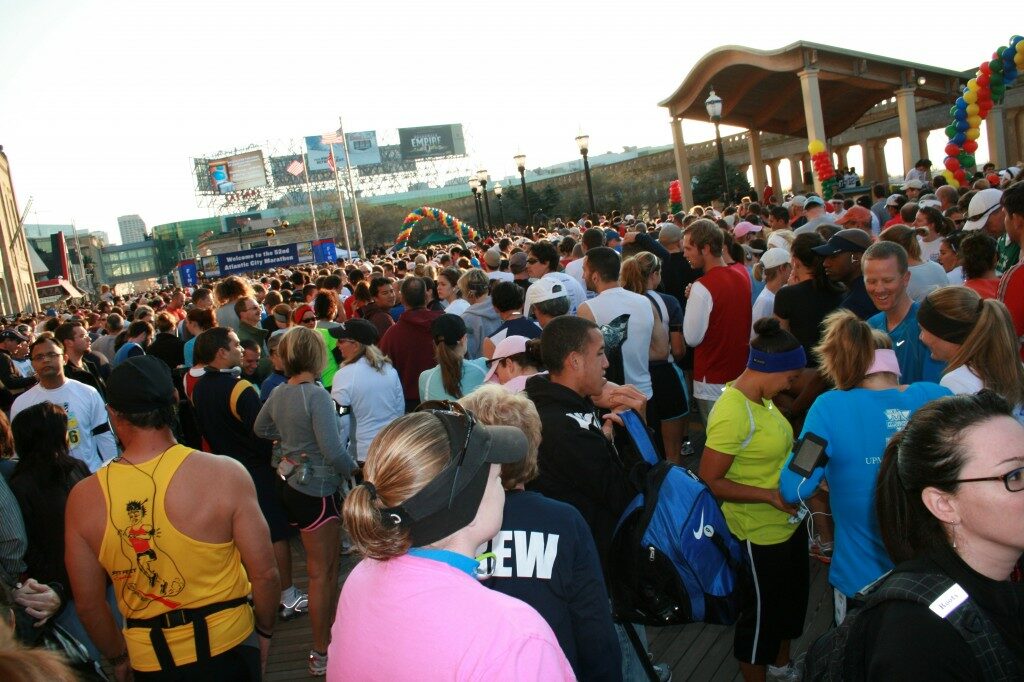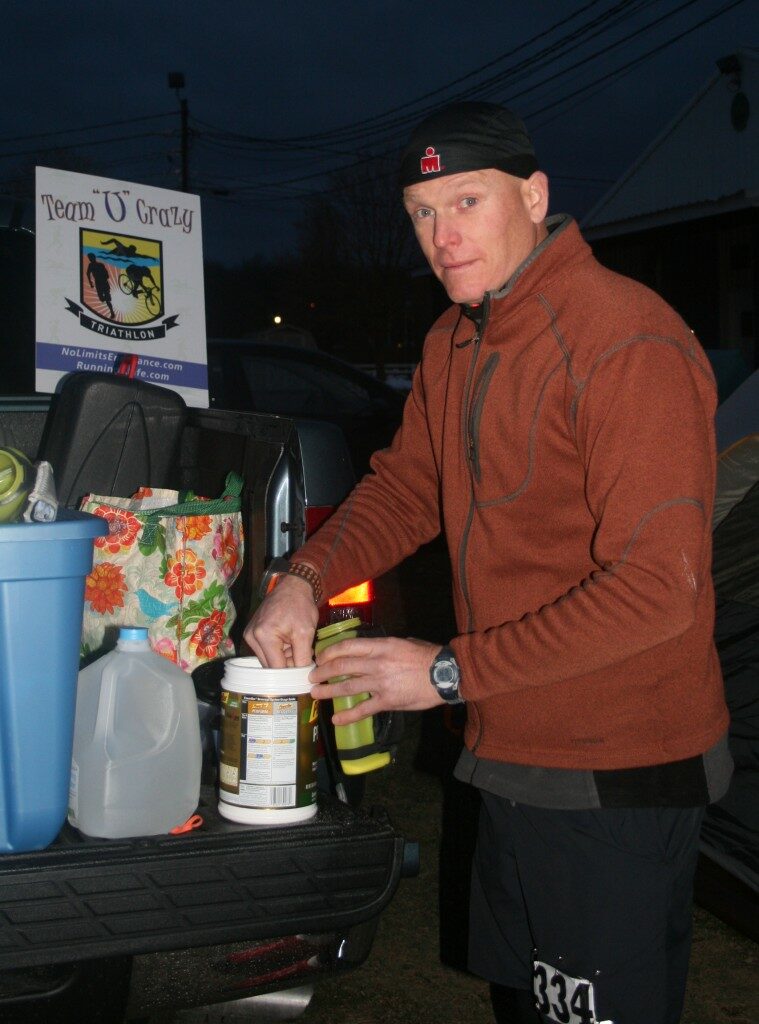As the ground thaws and the birds start chirping, the distances get longer. That’s right, people: it’s marathon season!

While you can find a marathon during any time of this year, the spring and fall seasons have many, many options.
Marathons involve a long-term commitment to training – ideally four months of training focused specifically for your marathon. But, if you are BRAND NEW to running or coming off the couch, we would recommend at least a year of solid training or more to avoid injury.
If you are running a marathon soon, here are our top marathon race day tips for preparation the day before the race and strategies for the day of the race.
Pre-Race Prep
- Packet Pickup. If you can, pick up your race packet the day before the race. For many larger races, this is a mandatory requirement. But, even if you are doing a smaller race, I highly recommend it. Race morning can be chaotic. Avoiding that fray is important.
- Gear Organization. Set out all of your race gear the night before. This will save you time in the morning, and it also helps to calm pre-race jitters. Use a checklist, such as the customizable one available from RaceChecklist.com.
- Have your food ready to go: breakfast, race nutrition, hydration, post-race recovery food/drink. John and I will put our drinks in the refrigerator, and then all we have to do in the morning is pop them in a cooler (which we place strategically by the door), add some ice and off we go.
- Pre-pack your car the night before. Of course, not everything can be packed the night before, but try to place all those items that can be packed away. Again, this saves valuable time in the morning.
- Create a list of tasks you must complete on race morning. This list should also include any last minute items you need to pack. That way, there’s no guessing, and all you need to do is simply follow your list.
Race day
Mental Game
- Keep your excitement level to a 4 on a scale of 10. It is very easy to get taken up in the pre-race excitement of race morning. Don’t get sucked into it. Stay calm in your heart, and focused in your mind. Focus on the present moment, and stick to your race plan. When you cross the finish line, that is the time to let your excitement out!
- Focus on what YOU are doing, not others. While I like to focus on people in front of me and try to catch them, I also need to keep my focus on my plan. Don’t let someone else knock you off your game – mental or physical.
- Smile–even if you aren’t feeling it. Or, I should say ESPECIALLY when you aren’t feeling it.
- Send out positive energy and feel it come back to you. This is clearly connected to the previous tip-but can include more than a smile. Yell “woop! Woop!” to the crowd and just enjoy all the energy they throw back at you.
- Work through the rough patches. At some point, the run will become a matter of mental will. Recognize the sensations, think about them objectively, and realize that it’s a temporary condition, a consequence of your hard work. Shift your focus to positive thoughts, and soon enough, those annoying pains will shift out of your attention. Don’t give in to the negative voices. They are liars.
- Visualization. A way to help you work through the rough patches is to visualize the finish line and how good it will feel to cross that final timing mat.
Race Strategy
- Stay warm before the start but don’t overdress for the race. Spring marathons often start in chilly mornings. Consider buying an inexpensive sweatshirt and sweat pants that you can take off at the starting line and won’t

